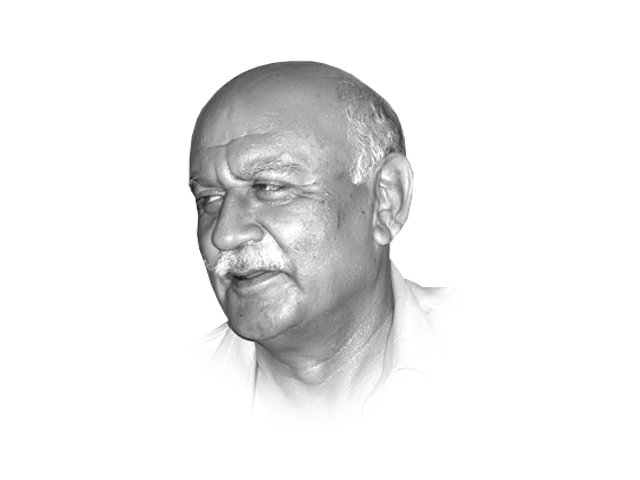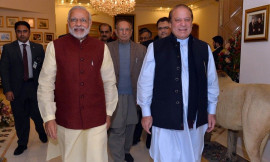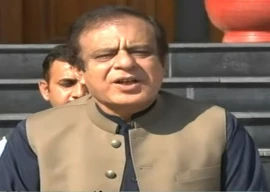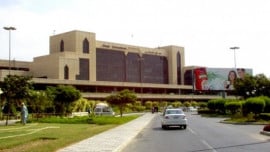
Virtually all analysts on both sides of the border have views on Narendra Modi’s visit to Lahore on Christmas. He chose the best day to woo Nawaz Sharif — his birthday and grand-daughter’s wedding, but he didn’t need to. Nawaz has been as persistent in making friendly overtures towards India and Modi, as Modi has been in rejecting them. No wonder everybody is wondering: why the volte face? Let me state unequivocally right at the outset, I don’t trust Modi — not India or Indians, just Modi. Consequently, my subconscious might well be seeking for possible conspiracy theories. You can decide if you wish to read further or not, on that basis.
During the election campaign in India last year, the majority opinion was that the Modi-led BJP was likely to win the largest number of seats, but no one expected the landslide victory that resulted. Some liberal-minded Indians were also expressing their concerns about the fact that Modi’s campaign was unabashed and totally unregretful of the anti-Muslim riots that occurred during his watch as chief minister of Gujarat.
To many Indians, his unashamed brazen approach was appealing.
His more general appeal, however, was due to the contrast between him and his predecessor. The preceding period of the Congress-led government was considered by most Indians to be the most corrupt and inept period of governance in India, resulting in the country lagging behind the ‘Asian Tigers’. And, as compared to Manmohan Singh, Modi came across as a ‘mover and shaker’.
Southern India is vastly different from the country’s northern parts. Not only is it indifferent to India’s desire for military domination of the region, its motivating force is largely economic. And Modi offered precisely that. Modi promised a Shining India, and very soon. It was this idea that caught the imagination of all Indians, but most of all, of those in southern India. Northern India might have been motivated as much by his macho image as by his economic vision, but not the south, which hugely contributed to Modi’s success.
After the election, Modi continued blowing hot and cold towards Pakistan, periodically threatening and flexing his military muscles on the Line of Control in Kashmir. Domestically, he was following the same policies he had adopted as chief minister in Gujarat, indicating his indifference to the plight of Indian Muslims.
With the passage of time, the more radical Hindus caught the drift and, conscious of the liberty that was on offer, began to indulge in increasing extremism. As India moved steadily towards increasing radicalism, liberal Indians began to express their concerns more vocally. Many highly respected personalities surrendered awards given to them by a grateful nation.
After his Lahore stopover, Pankaj Mishra, the Indian journalist, described Modi best when he said, “He is, as his own senior colleague LK Advani pointed out, a ‘brilliant and efficient event manager’.”
And Mishra adds, “But believing that Modi’s Christmas mission will produce a great and enduring bonanza, including his own change of heart, may be a bit like believing in Santa Claus.”
Modi numbers among those politicians who are very active on social media; this gives him a direct and accurate ‘feedback mechanism’, independent of Gallup-like polls.
His failure to deliver economically and his fostering the Hindutva theme were costing him dearly. As his self-created image began to falter and his popularity plummeted, in my view, Modi was desperate to stage a recovery of his image, but far more importantly, of his economic ability. The swiftest, and perhaps, surest method was to reach out to Pakistan.
Defying geographic realities, Modi had stubbornly persisted in trying to reach Afghanistan and Central Asia via Iran. But geographic compulsions are immutable. And, while the Iran-Afghanistan route is possible, it will be considerably more expensive.
Furthermore, merely due to geographic realities, the China-Pakistan Economic Corridor, which is likely to be an economic game changer for the region in general and Pakistan in particular, has no place for India, unless India makes a place for itself, via Pakistan. For decades past, I have been trying to drive home to my Indian friends that Pakistan is the junction of South Asia, the Middle East, Central Asia and China. Consequently, the cheapest overland access to energy resources and everything else that is available in these regions is dependent on Pakistan.
Many analysts are crediting Modi’s change of heart vis-a-vis Pakistan to external pressures. In my opinion, politicians are invariably more sensitive to domestic pressures than foreign ones.
The attack on Pathankot, however, will test my thesis. I find its timing amazing. It provides an ideal opportunity for Modi to assume the garb of the injured idealist politician, who reached out to Pakistan and was immediately betrayed. And, it also provides an ideal opportunity for him to establish his credentials as one who has had a genuine change of heart. As if that were insufficient, the Indian consulate in Mazar-e-Sharif also came under attack. As expected, the hardline Indian media has identified Islamabad as the culprit. So far, official spokespersons have not. We will have to wait and see how the cookie crumbles.
Published in The Express Tribune, January 7th, 2016.
Like Opinion & Editorial on Facebook, follow @ETOpEd on Twitter to receive all updates on all our daily pieces.



































1713509570-0/Taylor-Swift-Album-Release-(1)1713509570-0-270x192.webp)





















COMMENTS (14)
Comments are moderated and generally will be posted if they are on-topic and not abusive.
For more information, please see our Comments FAQ